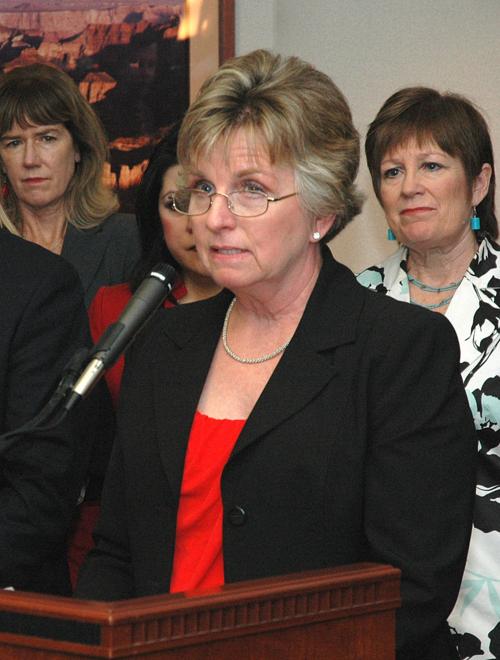PHOENIX — The legislative session is poised to wrap up Wednesday, May 10, with a vote to try to change Arizona’s stingiest-in-the-nation eligibility for a key welfare program.
Senate President Steve Yarbrough told Capitol Media Services he has the votes to once again allow people who meet certain income standards to get Temporary Assistance for Needy Families (TANF) for up to two years. That is one of the last things holding up adjournment of the legislative session, which is more than two weeks past its deadline to adjourn.
The TANF legislation is a going-home priority for Republican Gov. Doug Ducey.
At two years, Arizona had among the shortest periods for aid. But in 2015 the governor signed legislation making Arizona the only state with a one-year lifetime cap on the assistance.
Ducey had a change of heart this year, at least partly.
He proposed allowing people to remain on the rolls a second year. But the governor insisted on conditions for extended coverage, including a requirement they be working or attending school and that they cannot voluntarily quit their job. A family would lose its eligibility if all its children were not attending school at least 90 percent of the time.
Democrats oppose the measure, saying the conditions are designed to trip up families — and have them forfeit a second year of coverage — for what could be a single violation of TANF rules. But Ducey is unwilling to support full, unconditional restoration.
“The governor believes the way it’s structured in this bill is good policy,” said gubernatorial press aide Daniel Scarpinato.
What has held up a vote is that Sen. John Kavanagh, R-Fountain Hills, a supporter of the measure, is in Louisiana this week for a class he needs to teach criminal justice at Scottsdale Community College. That leaves just 16 Republicans in the 30-member chamber, meaning unified support was needed.
Sen. Kate Brophy McGee, R-Phoenix, voted against cutting eligibility to one year in 2015. But she said Tuesday she will cast the deciding vote for this measure even though it will not restore TANF eligibility to the way it was. The alternative, she said, is the bill fails and the one-year lifetime limit remains in place.
“Seventy percent of something is a lot more than zero percent of nothing,” she said, citing figures from Ducey. The governor said he believes that seven out of every 10 people who get the first year of TANF help will remain eligible for the second year.
Scarpinato said the legislation also contains other reforms the governor wants.
One would allow drug offenders who have completed their prison terms to get food stamps as a method of getting back on their feet. There is a requirement to agree to random drug testing.
Another provision waives state licensing fees for people below 200 percent of the federal poverty level — about $40,000 for a family of three — in an effort to help them start their own businesses.
Another hurdle to wrapping up the session that began in January was cleared Tuesday when Brophy McGee provided the crucial 16th vote for legislation to restrict the ability of cities to ask their voters for sales tax hikes.
That legislation, which now goes to Ducey for his anticipated signature, spells out that such elections have to take place in even-numbered years, and only at the November general election. That overturns existing laws which permit city elections on any of four specific days in any year. Several cities prefer to have such votes separated from the election of federal, state and local officials.





